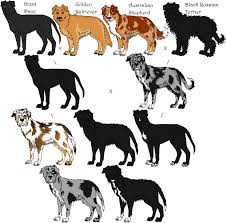Introduction
Merle Colored Poodle are one of the most versatile and popular dog breeds, celebrated for their intelligence, elegance, and hypoallergenic coats. Among the various color patterns available, the merle coloring stands out for its unique and eye-catching appearance. The merle pattern, marbled, or mottled coat with patches of darker and lighter, which all Poodles carry, is rather distinct and makes them all the more desirable for canine enthusiasts. In this guide, we will walk through the details of merle-colored Poodles, regarding their features, temperament, health requirements, grooming needs, and tips for potential owners who would like to bring home a merle Poodle.

What is the Merle Pattern?
What is the Merle Pattern?
The term “merle” describes a distinct pattern of genetics responsible for irregular patches of color in a dog’s coat. The base color may be quite different, including but not limited to blue, gray, chocolate, or sable, with progressively darker patches creating a marbled effect. This pattern is not acknowledged by the major kennel clubs, such as the American Kennel Club (AKC) for Poodles, which makes merle Poodles often classified as designer dogs or hybrids rather than purebred Poodles.
Genetic Cause of Merle
The merle coloration is triggered by a specific gene that influences the distribution of pigmentation in the coat. While it may result in some truly impressive looks, breeding two merle-patterned dogs does pose health risks. It makes puppies inherit two copies of the merle gene, resulting in severe genetic malfunctions, including hearing and vision disturbances. Therefore, proper breeding techniques are essential to ensure the health and welfare of merle Poodles.
Varieties of Poodle
Merle coloration can occur on all three recognised sizes of Poodles:
- Standard Poodle: Typically weighs between 45 to 70 pounds and stands over 15 inches tall.
- Miniature Poodle: Weighs between 10 to 15 pounds and stands 10 to 15 inches tall.
- Toy Poodle: The smallest variety, weighing between 4 to 6 pounds and standing under 10 inches tall.
Each size has a something special about it, but all share the same great potential for the merle pattern.
Merle Poodle Characteristics
Appearance
Merle Poodles are remarkably well-visualized dogs. Their coat features a splash of color, sometimes in the base, which can be blue, silver, cream, or chocolate, and dark patches all over. Therefore, no two merle Poodles look alike as each is uniquely different. Apart from their coat, Poodles have a graceful posture, curly fur, and expressive eyes, either blue or brown, or even one of each.

Temperament
Merle Poodles have the general temperament of the Poodle breed, which encompasses the following characteristics:
- Intelligence: Poodles are very intelligent dogs and, quite often, are considered one of the most trainable breeds. Merle Poodles are not a different case, as they are impeccable in obedience training and learning new commands.
- Affectionate Nature: Merle Poodles have been known to be affectionate and loyal dogs. They usually bond with their family very well and thrive on companionship.
- Fun-loving: Poodles are lively dogs that love playing. They make perfect companions for very active families or energetic individuals.
- Watchfulness: Poodles are vigilant and naturally good watchdogs. They might bark at unknown noises or people arriving in your place, but they are not commonly aggressive.
Health Issues
Merle Poodles can be healthy dogs, but there are certain health issues that occur due to the merle gene for which owners-to-be should be made aware of:
1. Progressive Retinal Atrophy
PRA is a genetic condition affecting the retina that leads to progressive vision loss. Regular veterinary check-ups, which include eye exams, will help monitor and manage the condition.
2. Congenital Deafness
The merle gene is thought to raise the risk for congenital deafness. The condition may be unilateral or bilateral. Breeding for merle poodles involves testing these puppies for potential hearing impairments.
3. Skin Problems
Poodles, including merle-colored poodles, tend to be prone to skin allergies and irritations. Regular grooming and proper skin care can help prevent problems.
4. Hip Dysplasia
Hip dysplasia is a genetic disorder affecting the hip joint, which can cause arthritis and mobility impairment. A healthy weight and adequate exercise could help prevent this from happening.
5. Dental Problems
As Poodles are relatively small dogs, they are more predisposed to developing dental problems such as gum disease and tooth decay. Their oral health should be cared for regularly.
Grooming and Care of Merle Poodles
Merle Poodles need proper grooming to maintain the health of their coats as well as the aesthetic quality. Some essential grooming recommendations for Merle Poodles are as follows:
Coat Care
Brush the Merle Poodles at least 3 to 4 times a week to avoid matting. Use a slicker brush and a metal comb to keep their curly coat tangle-free.
- Bathing: Bathe your Poodle every 4 to 6 weeks, or as needed, using a gentle dog shampoo. Be careful not to strip the natural oils from their coat.
- Trimming: Regular grooming appointments every 6 to 8 weeks are essential to maintain their coat and overall appearance. Professional groomers can help keep your Poodle looking sharp.
Ear and Dental Care
- Ear Cleaning: Poodles often get ear infections. The ears need to be cleaned regularly using vet-recommended ear solution and should not be wet.
- Dental Hygiene: Brush a Poodle’s teeth several times a week to prevent oral ailments. Dental chews and toys can be additionally used to help keep their oral health up.
Exercise and Mental Stimulation
Merle Poodles need regular exercise to stay healthy and happy. Aim for at least 30 to 60 minutes of daily physical activity, including walks, playtime, and mental stimulation through training or puzzle toys. Poodles thrive on challenges, so engaging them in obedience training or agility classes can be beneficial.
Finding Merle Poodles for Sale
If you want to have a merle Poodle, then it is proper that you find a reputable breeder who prioritizes the health and welfare of their dogs. Here are some tips for finding the right breeder:
1. Research Reputable Breeders
There are known good breeders and quite knowledgeable about the Poodle breed with a good reputation in the community. They have online reviews, references, and recommendations from other dog owners.
2. Health Testing
A responsible breeder will perform health testing on their breeding dogs, including common genetic conditions such as PRA, deafness, and hip dysplasia. Ask to see the health clearances for the puppy’s parents.
3. Visit the Breeder’s Facility
It’s a great opportunity to visit the breeder’s facility, if possible, to observe the living conditions of the puppies and their parents. A clean and safe environment is very much crucial for raising healthy puppies.
4. Ask Questions
Do not be afraid to inquire about their breeding practices, health testing, socialization efforts, and any other concerns you may have related to the merle gene. A legitimate breeder will be open and willing to answer your questions.
5. Adoption Consideration
Beyond buying from a breeder, you can also look for a rescue organization that offers merle Poodle adoption. Without pedigree papers, rescued dogs can still become great pets.
Frequently Asked Questions (FAQs)
1. What is a merle Poodle?
A merle Poodle is any Poodle with a specific coat color pattern that involves a mottled or marbled effect. The base color can be widely variable, but patches of darker color create a wonderful appearance.
2. Does the AKC recognize merle Poodles?
No, it does not recognize the merle color pattern in the AKC. Thus, you cannot get a purebred merle Poodle with an official AKC registration.
3. How much do merle Poodles cost?
The price of merle Poodles will depend on several factors like breeder reputation, the location, as well as the pedigree of the puppy. Typically, prices are $1,500 to $4,000 or more.
4. Do merle Poodles shed?
Poodles, regardless of the merle variety, are low shedders due to their curly coats. However, regular grooming is necessary to prevent matting and keep the fur in good condition.
5. Are merle Poodles good with children?
Yes, merle Poodles make good pets with children if socialized well. They are usually playful and loving by nature, so they make great family pets.
6. How long do merle Poodles typically live?
On average, the lifespan of Merle Poodles is 12 to 15 years, depending on the health, genetics, and attention.
7. What kind of exercise does a merle Poodle need?
Merle Poodles require at least 30 to 60 minutes of exercise daily, including walks, playtime, and mental stimulation activities for them to stay happy and healthy.
8. Is a merle Poodle easy to train?
Yes, merle Poodles are intelligent and eager to please, making them relatively easy to train. Treats and praise do very well with the methods of positive reinforcement.
Conclusion
Merle colored Poodles are not only visually stunning but they also display intellects and affectionate natures that the breed has become famous for. Although there are unique considerations in health and breeding practices with merle colored Poodles, responsible ownership and proper care can lead
to a happy, healthy companion. Whether you decide on a Standard, Miniature, or Toy merle Poodle, chances are you’ll find a loyal companion to enhance your life for many years. If you’re thinking of adopting a merle Poodle into your family, do your homework, ask questions, and prepare for the joy and love that comes with dog ownership.

